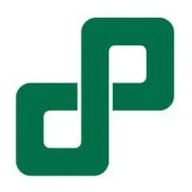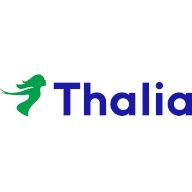Six Reasons Why a Private SaaS CMS is Better

Sara Williams

In the realm of content management systems (CMS), mid- to large-size enterprises face unique challenges requiring sophisticated solutions tailored to their specific needs. While public Software-as-a-Service (SaaS) CMS platforms offer a one-size-fits-all approach, private SaaS CMS emerges as the optimal choice, providing a wide range of benefits specifically designed for enterprises in this size range. In this comprehensive blog post, we will explore six major advantages of private SaaS CMS (compared with public SaaS CMS) and delve into why it is the superior option for mid to large enterprises seeking to maximize their digital potential.
1. Tailored to Enterprise Requirements
Mid to large enterprises operate in complex ecosystems with intricate workflows, varied user roles, and specific branding guidelines. Public SaaS CMS platforms often lack the necessary flexibility to accommodate these unique enterprise requirements. In contrast, private SaaS CMS solutions are purpose-built to adapt and align with the intricacies of large-scale organizations. These tailor-made systems empower enterprises to customize the cloud-based CMS according to their business processes, ensuring seamless integration with existing workflows and enabling the delivery of consistent branding across diverse touchpoints.
2. Unparalleled Security and Compliance
For enterprises dealing with sensitive customer information, proprietary data, and compliance regulations, robust security measures are non-negotiable. Public SaaS CMS platforms inherently introduce shared infrastructure and limited control, increasing the potential for security vulnerabilities. On the other hand, private SaaS CMS provides enterprises with dedicated resources and isolated environments, significantly reducing the risk of data breaches. Moreover, the ability to connect securely to private networks allows for seamless integration with internal systems while maintaining a fortified security posture. Private SaaS CMS empowers enterprises to meet stringent compliance requirements, safeguarding their reputation and ensuring data privacy.
3. Scalability and Performance Excellence
As enterprises expand their digital footprint and experience rapid growth, the ability to scale seamlessly is paramount. Public SaaS CMS platforms, with their shared resources, often struggle to deliver consistent performance during peak usage periods. In contrast, private SaaS CMS offers dedicated resources to each tenant, ensuring optimal performance even during times of high traffic. Enterprises can scale up or down effortlessly, dynamically adapting to evolving demands while maintaining exceptional user experiences across their digital platforms.
4. Empowering Side Workloads and Integration Capabilities
The operational needs of mid to large enterprises often necessitate the deployment of side workloads, custom applications, or integrations with existing systems. Public SaaS CMS solutions typically restrict tenants from running side workloads, limiting their ability to streamline processes and enhance productivity. In contrast, private SaaS CMS empowers enterprises to run side workloads within their dedicated environments, enabling seamless integration with critical business tools. The ability to connect securely to private networks further facilitates integration with internal systems and third-party applications, empowering enterprises to leverage their existing infrastructure investments and unlock new levels of efficiency.
5. Dedicated Support and Tailored SLAs
Mid to large enterprises require comprehensive support and Service Level Agreements (SLAs) that are specifically tailored to their unique needs. Public SaaS CMS platforms typically offer standardized support options that may not align with the specific requirements of enterprises. Private SaaS CMS providers recognize the significance of dedicated support and are well-equipped to deliver personalized assistance, address complex issues promptly, and prioritize critical incidents based on the enterprise's priorities. This tailored support ensures minimal disruption to business operations, enhances productivity and enables seamless digital experiences for customers.
6. Data Ownership and Control
In the era of data-driven decision-making, enterprises understand the critical importance of maintaining control over their valuable data assets. Public SaaS CMS platforms often involve shared infrastructure and limited control over data management, leaving enterprises reliant on the provider's policies and procedures. In contrast, private SaaS CMS solutions grant enterprises complete ownership and control over their data, enabling them to define their data governance policies, implement specific access controls, and adhere to their internal data management practices. This level of autonomy ensures data sovereignty, mitigates the risk of vendor lock-in, and facilitates compliance with industry-specific regulations.
Summary
When it comes to content management systems, mid to large enterprises require a comprehensive, tailored solution that meets their intricate requirements while ensuring optimal performance, security, and scalability. Public SaaS CMS platforms fall short in accommodating the unique needs of large-scale organizations, making private SaaS CMS the clear winner in this domain. By choosing a private SaaS CMS, enterprises can unlock their digital potential, streamline operations, enhance security and compliance, empower side workloads and seamless integrations, and leverage dedicated support to drive growth and deliver exceptional digital experiences. Embracing a private SaaS CMS is a strategic move that positions mid to large enterprises for success in the evolving digital landscape.
To learn how CrafterCMS uses AWS to deliver a market leading private SaaS CMS solution to major enterprises, read our White Paper: Choosing a CMS for Building Content-Driven Sites and Apps on AWS.
Related Posts

AI Skills for CMS-Based Web Development

Sara Williams

From HTML Template to Fully Managed Experience in Minutes: CrafterCMS + AI-Powered Workflows

Sara Williams

How Should You Structure a Blog Post So AI Models Actually Cite It?

Amanda Jones

Publishing Content from Crafter Studio to External Systems and Databases

Sara Williams
Related Resources
-
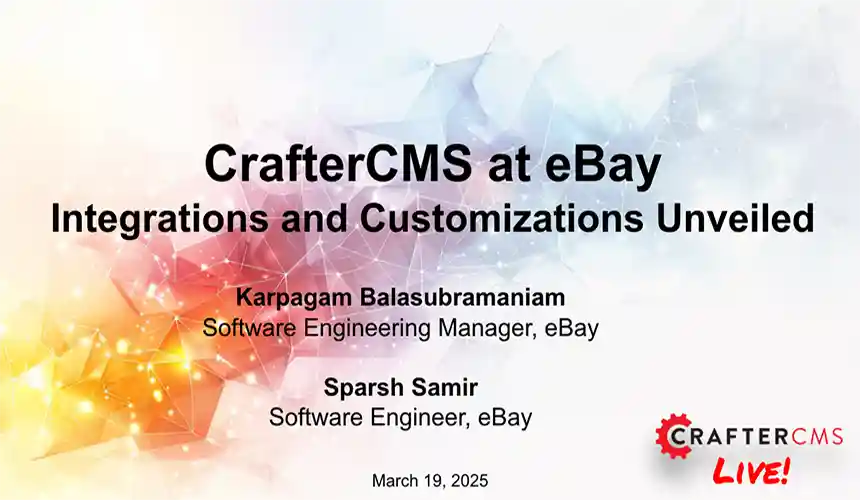
CrafterCMS at eBay: The Universal Content Platform for eBay.com
Webcast
-

Personalized Digital Experiences for a Cruise Liner
Webcast
-
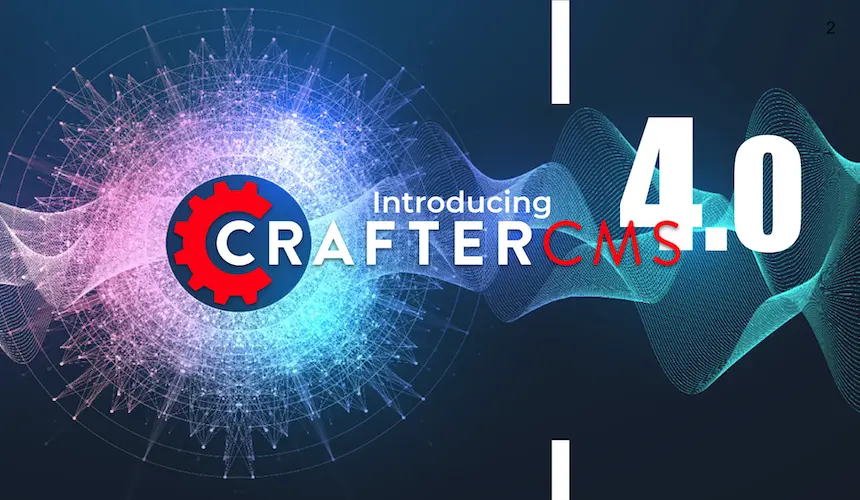
Introducing CrafterCMS v4.0
Webcast
-
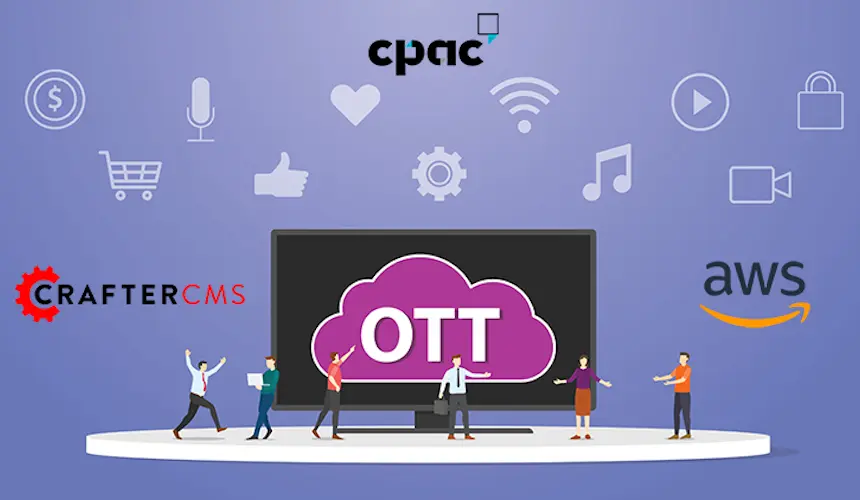
Modernizing Video Delivery and Content Management at CPAC, A Canadian Nationwide Broadcaster
Webcast
-

AI-based Media Asset Management with AWS Rekognition and CrafterCMS
Webcast
